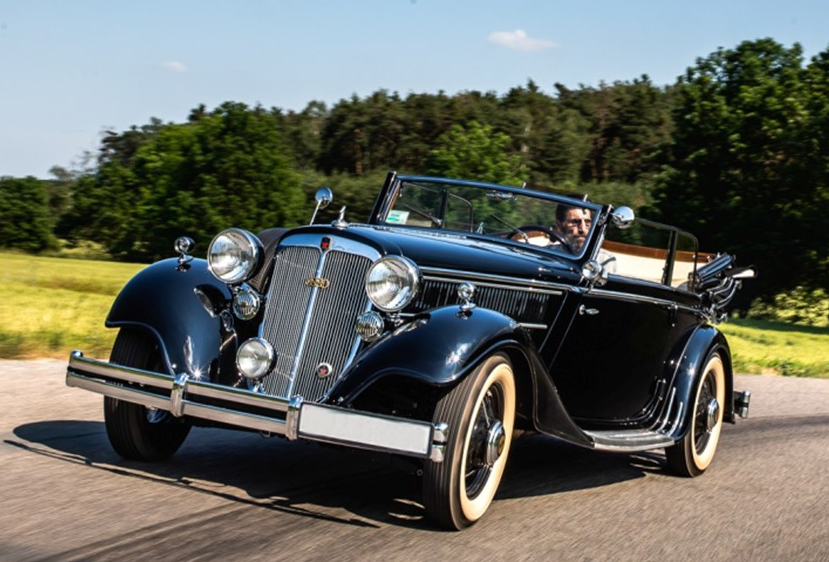1932 Lanchester 30HP Straight Eight
Offered by Historics Auctioneers | Ascot, U.K. | May 15, 2021

The Lanchester Motor Company was founded in 1899 by the three Lanchester brothers: George, Frederick, and Frank. They sold their first cars in 1901, and the company was acquired by BSA in 1931. The last cars were produced in 1955, and the brand name was acquired by Jaguar in 1960 and has remained with the Jag through its various acquisitions.
The 30HP Straight Eight was designed by George Lanchester and was sold between 1929 and 1932. Power is from a 4.4-liter SOHC inline-eight rated at 30 taxable horsepower. As we all know, 1929 was a poor year to launch a high-end new car (see Duesenberg; also see Lanchester’s subsequent 1931 takeover by BSA).
Only 126 examples of the Straight Eight were built. This one was re-bodied in the 1960s in its current style and is one of the final examples produced. The pre-sale estimate is $97,000-$111,000. Click here for more info and here for more from this sale.
Update: Not sold.
Update: Sold, Bonhams Beaulieu 2022, $68,761.


